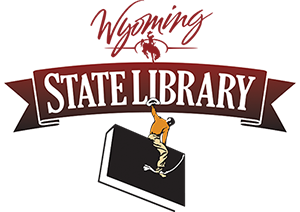 In addition to the live webinars in our training calendar, each month we try to pick some videos out there that you can watch “At Your Leisure.” These on-demand offerings caught our attention for November.
In addition to the live webinars in our training calendar, each month we try to pick some videos out there that you can watch “At Your Leisure.” These on-demand offerings caught our attention for November.
Programming for Adults with Developmental Disabilities: Why and How (Infopeople)
Often residential and day programs for people with developmental disabilities bring clients to their local public library to visit, however, these groups don’t really engage with the library’s many services or programs. Adults with developmental disabilities also come to the library on their own. Many times, individuals with intellectual and/or developmental disabilities are directed to youth services and not the adult departments which are more appropriate. This confusion could present a barrier to offering these patrons more than just a place to visit. Would you like to offer programming for adults with developmental disabilities rather than just a place to visit?
Genealogy Series: Finding Genealogy Resources and Tools on Archives.gov (US National Archives)
This presentation will provide an overview of what’s available for genealogists on the archives.gov website, and demonstrate how to navigate to its many resources and tools, including the National Archives Catalog, the Access to Archival Databases (AAD) system, the Microfilm Catalog, topic pages, articles, reports, and blogs. We’ll explore the Genealogy portal page, and also see how the website is organized, which will enable you to do even more expansive searches for information.
Opportunity Out of Adversity: Digital Access in Rural and Small Libraries (WebJunction)
Opportunity often hides behind adversity. As libraries look to a future of post-pandemic challenges, from looming budget cuts to increasingly urgent community needs, David Lankes, in The “New Normal” Agenda for Librarianship, encourages us to consider framing the positive opportunities, rather than loss, in the changes that lie ahead. If we are intentional, we can use these circumstances to grow our organizations and to address the digital access disparities in small and rural communities. This presentation explores how one rural library has improved internet access in partnership with an internet service provider, hosted telehealth appointments in collaboration with healthcare providers and transportation agencies, worked with schools to ensure opportunities for youth through esports, and improved digital literacy skills for patrons and local businesses.
Media Literacy for Adults: Misinformation and Disinformation (Programming Librarian)
Fake news can be difficult to combat because of how quickly it spreads throughout the online sphere. How can library workers help patrons decipher between what is real and what is fake? In this webinar, Nicole Cooke of the University of South Carolina School of Information Science will discuss how libraries and information organizations are in prime positions to assist their students and patrons with disputing misinformation, disinformation, and malinformation.
